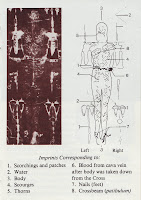
This is the equation that describes how something that can happen only one of two ways, p, and q, will happen if you make it happen n times. Say you have ten coins and you flip them all together 1024 times.
These are shown on the "bell-curve" graph.
0 heads and 10 tails - 1 time
1 head and 9 tails - 10 times
2 heads and 8 tails - 45 times
3 heads and 7 tails - 120 times
4 heads and 6 tails - 210 times
5 heads and 5 tails - 252 times
6 heads and 4 tails - 210 times
7 heads and 3 tails - 120 times
8 heads and 2 tails - 45 times
9 heads and 1 tail - 10 times
10 heads and 0 tails - 1 time
Or to put it another way: the probability or "chance" of getting 0 heads and 10 tails is 1/1024 or 0.000976563 (plus or minus a smidge; my calculator can display only 10 digits).
Similarly, the probability of
1 head and 9 tails is 10/1024 or 0.0098 (rounded to four decimal places)
2 heads and 8 tails is 45/1024 or 0.0439
3 heads and 7 tails is 120/1024 or 0.1172
4 heads and 6 tails is 210/1024 or 0.2051
5 heads and 5 tails is 252/1024 or 0.2461
6 heads and 4 tails is 210/1024 or 0.2051
7 heads and 3 tails is 120/1024 or 0.1172
8 heads and 2 tails is 45/1024 or 0.0439
9 heads and 1 tail is 10/1024 or 0.0098
10 heads and 0 tails is 1/1024 or 0.0001
These are shown on the "bell-curve" graph.
Enough with the numbers already. There are two important things to especially notice here:
1, the distribution of probabilities is symmetrical.
2, this is for an ideal situation; in a real test the numbers will not come out exactly like this (but that's the way to bet - the tendency will be towards this distribution especially if you flip the ten coins a "very large" number of times. How big "very large" is, we don't have to think about, Deo gratias).
G.K. Chesterton said in Orthodoxy, Chapter 6, "The Paradoxes of Christianity":
"The real trouble with this world of ours is is not that it is an unreasonable world, nor even that it is a reasonable one. The commonest kind of trouble is that it is nearly reasonable, but not quite. Life is not an illogicality; yet it is a trap for logicians. It looks just a little more mathematical and regular than it is; its exactitude is obvious, but its inexactitude is hidden; its wildness lies in wait."
and
"It is this silent swerving from accuracy by an inch that is the uncanny element in everything. It seems a sort of secret treason in the universe."
And Damon Runyon (also well worth reading) said: "The race is not always to the swift, not the battle to the strong, but that's the way to bet."









 Scene: second 1978 conclave. The cardinals are arguing vociferously about the best man for the job. One stand up and says, "Brothers in Christ, this contention is most unseemly!" Quiet descends. The cardinal continues: "Before the next ballot, let's take an informal poll."
Scene: second 1978 conclave. The cardinals are arguing vociferously about the best man for the job. One stand up and says, "Brothers in Christ, this contention is most unseemly!" Quiet descends. The cardinal continues: "Before the next ballot, let's take an informal poll."
